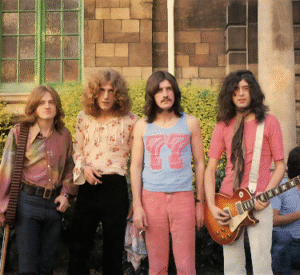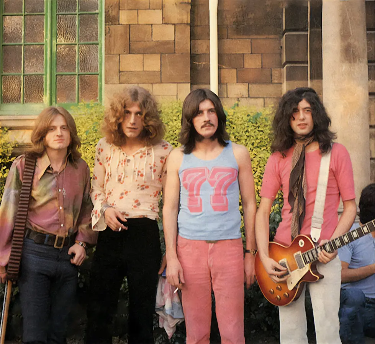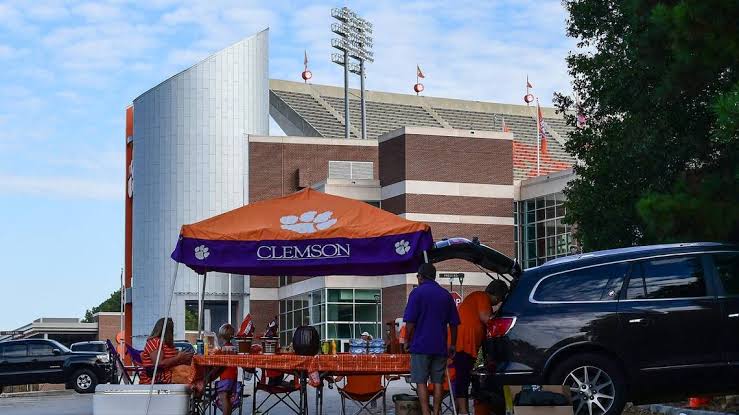**Robert Plant Loves The Festival – But Why Did Led Zeppelin Never Play Glastonbury?**
Glastonbury Festival stands as one of the most iconic and culturally significant music festivals in the world. Since its inception in 1970, it has become a pilgrimage site for music lovers, a showcase for legendary artists, and a symbol of British cultural identity. Yet, one of the most intriguing omissions in the festival’s storied history is the absence of Led Zeppelin—arguably the most influential rock band of the 20th century—from its lineup. Despite their towering legacy and influence, Led Zeppelin never graced the Pyramid Stage at Glastonbury, leaving many fans and historians puzzled.

This article delves into the curious history of Led Zeppelin and Glastonbury, explores Robert Plant’s enduring love for the festival, and investigates why the band, despite their prominence, never performed at Worthy Farm. We also reflect on Plant’s emotional moment on the farm in 2022, a poignant reminder of the band’s enduring connection to the festival and its fans.
The Early Days of Glastonbury and Led Zeppelin’s Rise
**Glastonbury’s Origins and Its Cultural Significance**
Glastonbury Festival was founded in 1970 by Michael Eavis, inspired by the hippie ethos and the music scene burgeoning across Britain. Initially a small gathering, it quickly grew into a major event, championing an eclectic mix of folk, rock, electronic, and alternative music. Over the decades, Glastonbury became a symbol of counterculture, environmental activism, and musical innovation.
**Led Zeppelin’s Ascendancy**
Meanwhile, Led Zeppelin emerged from the UK blues and rock scene in the late 1960s, quickly ascending to international stardom with their self-titled debut album in 1969. Known for their electrifying live performances, innovative sound, and legendary status, the band became one of the best-selling and most influential groups in history.
**A Notable Early Appearance at the Bath Festival**
Interestingly, Led Zeppelin did perform in Somerset early in their career—at the Bath Festival of Blues and Progressive Music in 1970. This performance, often overshadowed by their later global prominence, was a significant moment that showcased their rising star power. However, despite their ties to festivals in the same region, Glastonbury remained elusive.
Why Did Led Zeppelin Never Play Glastonbury?
**A Mystery of Festival History**
Despite their massive popularity and influence, Led Zeppelin never appeared at Glastonbury. This absence has puzzled fans and industry insiders for decades. Several theories have been proposed to explain this omission:
1. **Timing and Scheduling Conflicts**
Led Zeppelin’s touring schedule was notoriously demanding, often conflicting with festival dates. The band was known to prioritize their own headline shows over festival appearances, especially as their career progressed and their demand soared.
2. **Relationship with the Festival Organizers**
Unlike other festivals, Glastonbury has historically been somewhat independent and artist-driven. It’s suggested that the band, or their management, may have had reservations about performing at a festival that was still establishing its reputation when Led Zeppelin was at its peak.
3. **The Band’s Image and Attitude**
Led Zeppelin’s reputation for controversy, rawness, and sometimes unpredictable behavior might have made festival organizers cautious. Glastonbury, with its emphasis on ethos and ethos-driven lineups, may not have aligned with the band’s image at certain points.
4. **The Festival’s Evolution and Changing Priorities**
In the early 1970s, Glastonbury was still a relatively small event. As it grew into a major festival in the 1990s and beyond, the band’s priorities might have shifted away from festival appearances, especially given their focus on stadium and arena tours.
**Historical Context: The Band’s Relations with Festivals**
Unlike some of their contemporaries, Led Zeppelin rarely performed at festivals during their prime. Their approach was more selective, favoring large-scale, headline concerts. This strategic choice could have contributed to their absence from Glastonbury’s lineup.
Robert Plant’s Enduring Love for Glastonbury
**The Personal Connection**
Despite never performing there, Robert Plant has always maintained a fondness for Glastonbury. The legendary vocalist has spoken openly about his admiration for the festival’s spirit and its role in British cultural life.
**The 2022 Glastonbury Moment**
In 2022, Robert Plant finally stepped onto Worthy Farm in an emotional moment that resonated deeply with fans. During the festival’s 50th anniversary celebrations, Plant was visibly moved, and at one point, he was brought to tears as he watched a performance from the crowd. This moment underscored his genuine affection for the event and its community.
**Why Was He So Moved?**
There are several reasons why Plant’s reaction was so profound:
– **A Sense of Fulfillment**: After years of longing and missed opportunities, finally experiencing Glastonbury from the audience was emotionally overwhelming.
– **A Connection to the Past**: The festival represents a significant part of British music history, and Plant’s emotional response reflected his recognition of that legacy.
– **A Reflection of His Personal Journey**: For Plant, the festival encapsulates the communal spirit of music and the enduring bond between artists and fans.
The Broader Significance of Led Zeppelin and Glastonbury
**A Cultural Gap**
Led Zeppelin’s absence from Glastonbury is emblematic of a broader cultural gap. Their reluctance or inability to perform at the festival symbolizes the tension between the band’s mythic status and the evolving landscape of live music festivals.
**The Festival’s Evolution and Inclusion of Legacy Acts**
Over the years, Glastonbury has become increasingly inclusive of legendary acts, with reunions and special performances. The band’s members, especially Robert Plant, have often expressed a desire to perform at the festival, but logistical or strategic reasons have prevented it.
**The Potential for a Reunion**
Speculation persists about a possible Led Zeppelin reunion at Glastonbury. While such an event remains unlikely, it continues to fuel fan speculation and hopes for a historic moment.
Led Zeppelin’s absence from Glastonbury remains one of the festival’s most enduring mysteries. Despite their legendary status and undeniable influence, the band’s complex relationship with the festival’s organizers, their touring priorities, and their image all contributed to this historical gap.
Yet, Robert Plant’s love for Glastonbury is undeniable. His emotional moment on Worthy Farm in 2022 serves as a testament to the festival’s significance—not just as a platform for performance but as a symbol of the enduring power of music and community.
As the festival continues to evolve, the possibility of a Led Zeppelin reunion or surprise appearance remains a tantalizing prospect. Until then, the band’s legacy and Robert Plant’s heartfelt connection to Glastonbury will continue to inspire fans and historians alike, cementing the festival’s place in the annals of music history.
This article is a comprehensive exploration of the enduring mystery surrounding Led Zeppelin and Glastonbury, blending historical context, personal anecdotes, and cultural analysis to provide a nuanced understanding of this fascinating aspect of music history.



